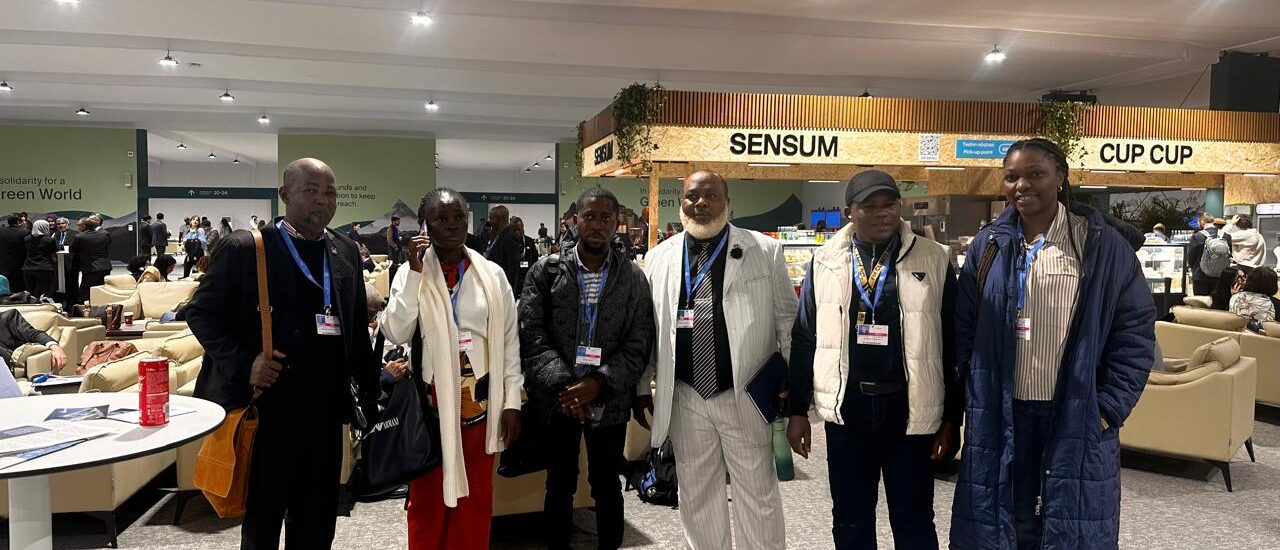
As the world converges at COP29 to address the pressing challenges of climate change, the need for inclusive and equitable solutions has never been more urgent. At the forefront of this discourse is Andrew Y. Y. Zelemen, the head of the Secretariat/National Facilitator and Program Manager at the National Union of Community Forestry Development Committees (NUCFDC) in Liberia. His advocacy for local voices in carbon market projects is a critical reminder that effective climate action must prioritize the rights and perspectives of those who are often marginalized in these discussions.
Zelemen asserts that “Free, Prior, and Informed Consent (FPIC) is not just a right; it is the cornerstone of equity in carbon market projects.” This statement underscores a fundamental principle that is frequently overlooked in the realm of climate action—local communities must have a seat at the table. The implementation of FPIC ensures that these communities are not only informed about projects that affect their lands and livelihoods but are also actively involved in decision-making processes. This approach is essential for safeguarding their rights, cultures, and sustainable futures.
The significance of local voices in carbon markets cannot be overstated. As Zelemen represents forest and land communities at COP29, he emphasizes the pivotal role that indigenous and local populations play in both climate mitigation and adaptation efforts. These communities possess invaluable knowledge about their ecosystems, which has been cultivated over generations. Their insights can lead to more effective and culturally appropriate solutions for carbon reduction, ultimately contributing to the resilience of both people and nature.
The Grassroots Justice Network’s Carbon Justice Campaign, which Zelemen is supporting at the conference, highlights the intersection of climate justice and community empowerment. The campaign advocates for policies that not only recognize but amplify the voices of those who are directly impacted by carbon market initiatives. By ensuring that local communities have agency over their resources, the campaign seeks to create a more just and equitable framework for addressing climate change.
Zelemen’s involvement in COP29 is a testament to the growing recognition of the need for grassroots participation in climate negotiations. The conversations surrounding carbon markets often take place at a macro level, focusing on national or corporate interests. However, without integrating local perspectives, these initiatives risk perpetuating existing inequalities and undermining the very communities that are essential to successful climate action.
Moreover, as the global economy increasingly turns to carbon trading as a mechanism for achieving emissions reductions, there is a pressing need to scrutinize how these markets operate. Transparency and accountability must be prioritized to ensure that benefits reach local communities rather than being siphoned off by external actors. Zelemen’s advocacy for FPIC serves as a vital check against potential exploitation within these markets.
In addition to protecting rights, empowering local communities can lead to innovative approaches to climate challenges. Communities that are engaged in the stewardship of their lands often develop practices that enhance biodiversity and improve ecosystem services. By centering their knowledge and leadership in carbon market projects, policymakers can foster solutions that are both environmentally sustainable and socially just.
As COP29 unfolds, Zelemen’s message resonates strongly: climate action must be rooted in equity. Local communities are not merely stakeholders; they are custodians of the land whose voices deserve to be heard. By advocating for FPIC and prioritizing local knowledge, we can create a more inclusive approach to carbon markets—one that respects cultural heritage while addressing the global climate crisis.
In conclusion, the advocacy work of Andrew Y. Y. Zelemen and the Grassroots Justice Network underscores a critical shift needed in climate action strategies. As we navigate the complexities of carbon markets, it is imperative that we uplift local voices and integrate their insights into policy frameworks. Only then can we build sustainable futures that honor both people and the planet, paving the way for true climate justice.

